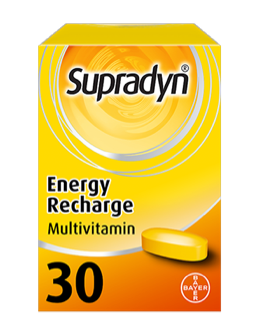SMART NUTRITION
How to recharge your energy with vitamins and minerals
Vitamins and minerals, which are called micronutrients, are substances essential for the proper functioning of your body.
You can get vitamins and minerals from foods you eat, but some foods can have more of them than others. Did you know that carrots are good for your eyes? Carrots are full of substances called carotenoids that your body converts into vitamin A, which contributes to eye health. Vitamins deficiencies can cause serious health problems. Vitamins are responsible for the functioning of vital processes. The body uses them to grow and develop. Each vitamin plays a different role in your body and some work together in certain processes or they support each other. The body is not able to produce vitamins, except vitamin D, so they must be provided through your diet. Like vitamins, minerals are essential for the physical and mental health of the body. It is always recommended to check food labels for the information on vitamins and minerals they contain. So, if you are choosing beverages, you'll find that a glass of milk is a good source of vitamin D and the minerals calcium, phosphorous. A glass of soda, on the other hand, doesn't have any vitamins or minerals.
HOW DOES IT WORK?
Your body transforms and metabolises vitamins and minerals into the energy supply.
A balanced diet is necessary for your body to get all the nutrients you need and to produce energy. The vitamins and minerals that are especially involved in the energy production are:
They are involved in energy metabolism, in the reactions that release energy. They help to break down food from bigger nutrients, into smaller units that the body can use to turn food into fuel.
Thiamine (B1) is important to several metabolic pathways, such as the breakdown of carbohydrates. Good food sources of this vitamin are: whole grain products, pork, black beans, and blue mussels.
Niacin (B3). This vitamin not only transforms food into energy but also helps keep your nervous system healthy. Foods rich in niacin are: poultry, peanuts, milk, fish, brown rice and whole grains.
Vitamin B6 is involved in nearly 100 metabolic pathways and is essential in the breakdown of foods, particularly carbohydrates. Good sources of vitamin B6: meat, rice, potato, and sunflower seeds.
Vitamin B12 also helps transform the food you eat into energy that your cells can use. It contributes to the normal functioning of the nervous system and normal red blood cell formation. Foods rich in vitamin B12 are: clams, trout, salmon, beef.
This mineral is used in 300 biological reactions, in the muscles, brain, bones and cells. Its role is important to enable your body to produce energy, face the challenges of everyday life, and preserve its health. Foods that contain magnesium: almonds, spinach, cashews, and avocado.
This is a multi-functional micronutrient which is involved in more than 300 metabolic processes in the body (from the brain to the immune system). A deficiency in zinc could cause low energy levels. Food sources of zinc are: oysters, crab, meat, and chickpeas.
This is an important vitamin-like substance required for the proper function of many organs and chemical reactions in the body. It helps provide energy to cells. Coenzyme Q10 has an antioxidant activity. It is eaten in small amounts in meat and fish.
Iron is an essential mineral that helps oxygen circulate throughout the body. It is also necessary for the body’s cell to develop and function properly. Iron deficiency often leads to anemia, which can impair cognitive abilities, decrease immunity, and negatively impact work performance.1,2 Foods rich in iron: oysters, white beans, lentils, spinach, and beef.
For the ultimate energy boost you should eat a varied diet. Nutrient contents vary from one fruit or vegetable to another, and it's the variety in the choices that will cover your needs. During a day it is recommended to eat three main meals and two snacks. Ideally, all the meals should include some of fruits and vegetables and should amount to five servings a day. A lack of essential nutrients can lead to a loss of energy. Supradyn Energy, thanks to the full range of vitamins and minerals provides the body with additional energy that it needs. It includes coenzyme Q10 which contributes to the release of energy in the body. Daily intake of Supradyn supports the process of transforming nutrients into energy needed by the body throughout the day. It is designed especially for people who lead a dynamic and busy life. However, diet is not the only factor of a lack of vitamins and minerals. Some lifestyle choices such as smoking, or alcohol consumption can contribute to lack of vitamins which in turn can increase physical and mental fatigue.
1 Abbaspour, N., Hurrell, R., Kelishadi, R. (2014). Review on iron and its importance for human health. Journal of Research in Medical Sciences, 9(12), 164-174.
2 Jáuregui-Lobera, I. (2014). Iron deficiency and cognitive functions. Neuropsychiatric Disease and Treatment, 2087. doi: 10.2147/ndt.s72491















